Factsheets
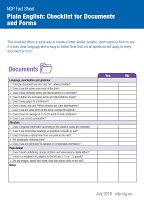
Plain English: Checklist for Documents and Forms
This checklist offers a quick way to review a letter, leaflet, booklet, short report or form to see if it uses clear language and is easy to follow.
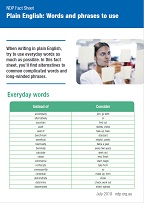
Plain English: Words and phrases to use
When writing in Plain English, try to use everyday words as much as possible. In this fact sheet, you’ll find alternatives to common complicated words and long-winded phrases.
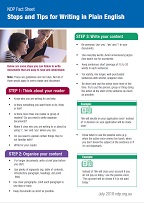
Steps and Tips for Writing in Plain English
Here are some guidelines and steps you can follow to write documents that are easy to read and understand.
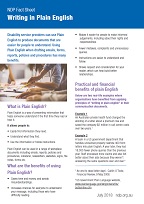
Writing in Plain English
Disability service providers can use Plain English to produce documents that are easier for people to understand. Using Plain English when drafting emails, forms, reports, policies and procedures has many benefits.
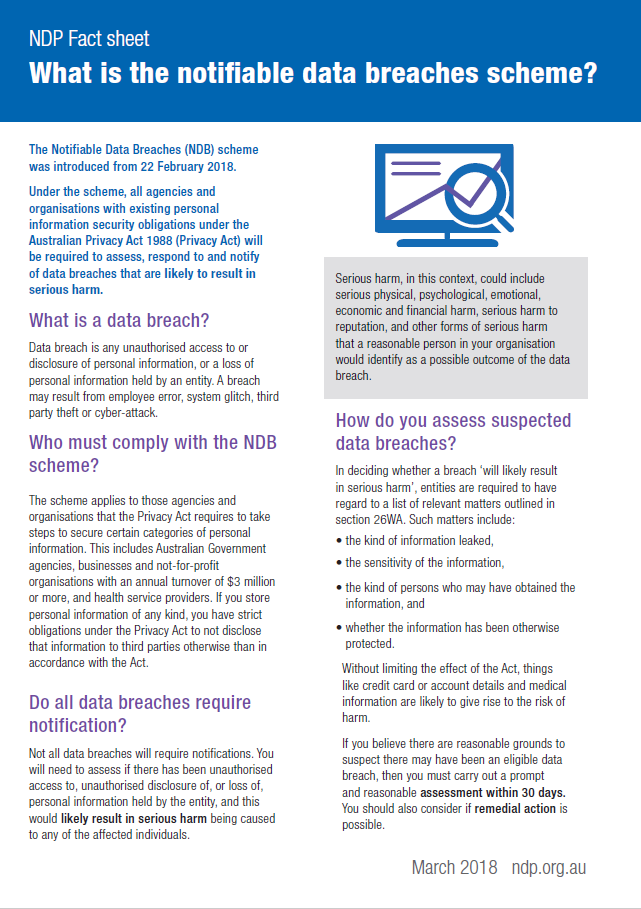
What is the Notifiable Data Breaches scheme?
The Notifiable Data Breaches (NDB) scheme took effect from 22 February 2018. This fact sheet explains what it's about and how it affects agencies and organisations with obligations under the Privacy Act.
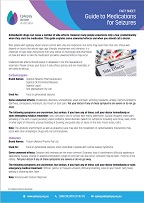
Guide to Medications for Seizures
Antiepileptic drugs can cause a number of side-effects. However many people experience only a few, predominantly when they start the medication. This guide explains some unwanted effects and when you should call a doctor.
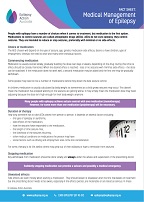
Medical Management of Epilepsy
People with epilepsy have a number of choices when it comes to medication. This fact sheet discusses important information to keep in mind when taking epilepsy medication.
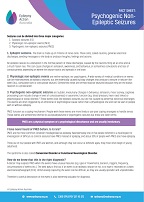
Psychogenic Non-Epileptic Seizures
This fact sheet explores psychogenic non-epileptic seizures, which are events that appear similar to epileptic seizures, but are often triggered by an emotional or psychological cause rather than a physiological one.
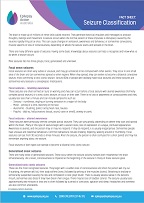
Seizure Classification
There are many different types of seizures. Having some basic knowledge about seizures can help to recognise and know what to do when a seizure occurs. This fact sheet explains the main seizure classifications.
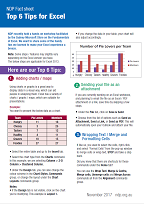
Top 6 Tips for Excel
NDP recently organised a hands-on workshop facilitated by the Sydney Microsoft Store on the Fundamentals of Excel. We want to share some of the handy tips we learned to make your Excel experience a breeze.






